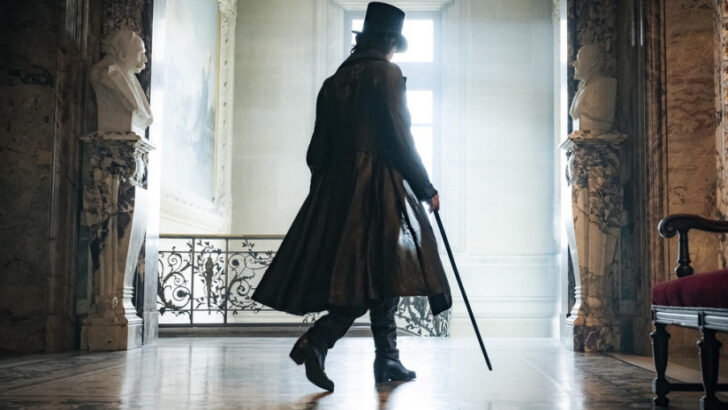How thought-provoking it is now to turn over the pages of the renowned Dictionary of Irish Biography (published by the Royal Irish Academy) and note how frequently Irish religious schools have been mentioned with honour.
Almost all of the revolutionary generation men were educated by priests and brothers; and even among noteworthy Irishmen who died in recent times, their Catholic schooling in Irish religious institutions often emerges as a contribution to their success.
Alumnus
Thus Stephen Gately of Boyzone is portrayed as a happy alumnus of the Christian Brothers (described by one of his teachers as “an absolute diamond”), as was Tony Ryan, the founder of Ryanair, Ronnie Drew of The Dubliners, chief justice Cearhbhall Ó Dálaigh, crusading TD Tony Gregory and Liam Clancy, whose interest in music and literature was developed during his CBS education. And need we mention Gay Byrne, who always identified himself as a CBS boy?
Belvedere College in Dublin satisfactorily educated Garret FitzGerald, Ulick O’Connor and Tony O’Reilly”
And thus the late Dr Anthony Clare’s distinguished career as a psychiatrist had its roots in his Jesuit education at Gonzaga (and the influence of an enlightened priest, Fr Joe Veale).
Here we read that Brendan O’Regan, the inspiring entrepreneur who developed Shannon Airport, was educated at Blackrock College where he shone at rugby and hurling; Anthony Cronin, author and poet was another successful pupil from Blackrock, as was the legendary Flann O’Brien, who died some years back.
Belvedere College in Dublin satisfactorily educated Garret FitzGerald, Ulick O’Connor and Tony O’Reilly. From my personal knowledge of both O’Connor and O’Reilly, both felt lifelong affection for their educators.
Critical
Some certainly were critical and grumbled about their teachers. Terry Wogan complained about corporal punishment at “The Cres” Jesuit college in Limerick, although he conceded it was routine in Britain and Ireland during his schooldays. The playwright Hugh Leonard reproached the Presentation Brothers in Glasthule for being sexually repressive, but I suppose that was par for the course at the time. Yet David Marcus, who was Jewish, and as an editor an important literary mentor to many contemporary writers, appreciated the education he received from the Presentation Brothers in Cork.
These biographical profiles represent just a glimpse of how Irish education, under the aegis of religious schools, has been such a strong part of the background of achievement in this country.
Is that picture now to be seen through the darker lens of sexual and physical abuse, with screaming headlines referencing 2,400 allegations of abuse across more than 300 religious-run schools?
So many people of an older generation would have been brought up with the idea that the system of education provided by Irish religious was the foundation of the modern Irish nation. Now what?
Patriotism and values
When I was growing up, I knew Gaelgoirí families who – as depicted in the ridiculous cartoon published by the Educational Company of Ireland’s – favoured Irish produce, wore Aran jumpers, embraced Irish dancing, and indeed, if they were in the GAA, were obliged to rebuff “foreign games”. (Although I don’t remember bacon and cabbage being an especial cuisine priority.)
Yet the significant thing about these “Irish-Irelanders” – as they were known – was that they were also, usually, outward-looking in terms of being open to foreign cultures. The attitude of many Irish-Irelanders was to favour an alternative culture to the prevailing Anglo-American dominance – so they were often more universalist than the mainstream. They spoke Irish – but other languages too.
Edco have apologised for any “hurt” caused, but the real problem is the shallowness of their thinking. Being patriotic about your own traditions doesn’t mean you despise the values of others; on the contrary, it usually means you understand others’ patriotism better.
That’s also true of religion, in my view. If you have a sense of the sacred about your own faith, you can better grasp why Hindus bathe in the Ganges for the forgiveness of sins or Muslims make sacrifices to go on pilgrimage. I’m not sure the “woke” ideologues understand this.
***
The Vatican once banned Alexandre Dumas’s rollicking adventure novel “The Count of Monte-Cristo” – on the grounds that the central storyline is about a man seeking revenge, and revenge is unChristian.
A new, epic French film version of the story has just come out, and it’s vividly in the swashbuckling tradition. It shows both the awful brutality of a mariner’s life in the 1820s and 30s, and the exquisite costumes and swordplay of the time.
The revenge theme is present, but so is its cost. Revenge ends with more death and destruction. Yet Dumas’s story also helped to prompt campaigns in the 1830s against duelling, mostly supported by women, and especially mothers, who deplored the reckless way that young men were slain on the turn of a perceived challenge to honour.
And fair play to the Vatican – they had outlawed the duel in 1215, at the Fourth Lateran Council!


 Mary Kenny
Mary Kenny A still from the upcoming movie The Count of Monte Cristo
A still from the upcoming movie The Count of Monte Cristo